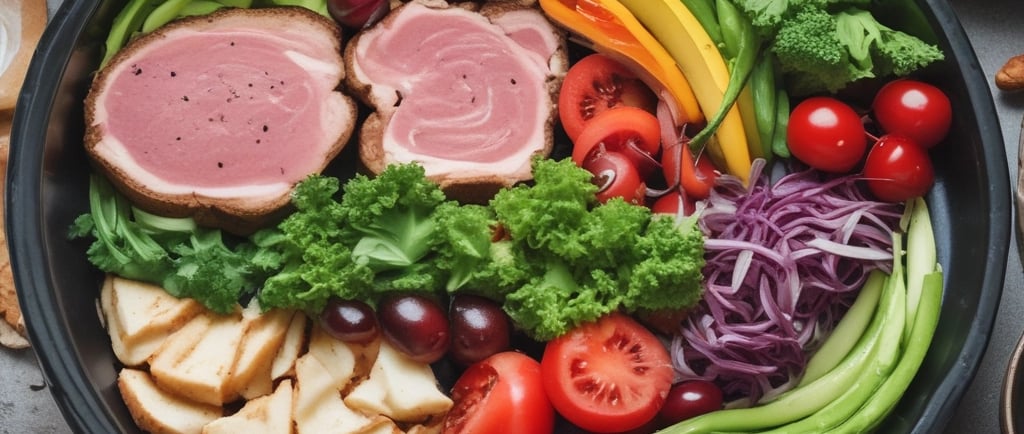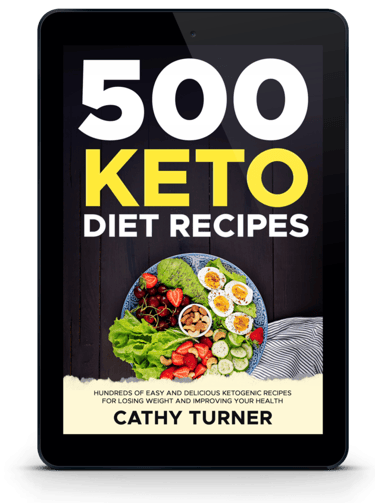The Ultimate 7-Day Meal Plan for Weight Loss on a Budget
Discover the ultimate 7-day meal plan for weight loss on a budget! Enjoy healthy, delicious, and affordable meals
WEIGHT LOSSHEALTHY DIETDIET PLAN
2/17/20255 min read


Achieving weight loss objectives does not necessarily require significant financial investment. Understanding the principles behind successful weight loss is crucial, especially when adhering to a budget. One of the fundamental aspects is calorie control; by maintaining a caloric deficit, one can effectively lose weight without excessive spending. Incorporating nutrient-dense foods into the diet allows individuals to consume fewer calories while still feeling satisfied, ensuring that their energy needs are met efficiently.
Balanced nutrition plays a pivotal role in a sustainable weight loss journey. This entails consuming a variety of food groups, including fruits, vegetables, whole grains, lean proteins, and healthy fats. Budget-conscious meal planning can promote balanced nutrition by emphasizing seasonal produce and affordable protein sources such as beans, lentils, and eggs. These options not only support weight loss but also provide essential nutrients without straining finances.
Portion control is another principle to consider. By being mindful of serving sizes, individuals can enjoy a wide range of foods while still staying within their calorie goals. It is beneficial to use smaller plates and bowls, which can help with reducing portion sizes and preventing overeating. Meal prepping can significantly aid in this process, as it allows for the customization of portions according to individual dietary needs and preferences.
Additionally, choosing affordable, nutrient-dense foods is vital for promoting satiety and metabolic health. Foods high in fiber and protein can help keep hunger at bay, making it easier to adhere to dietary restrictions while still feeling satisfied. Understanding the importance of these principles can significantly enhance one's ability to manage weight on a budget effectively and sustainably.
Creating a 7-Day Meal Plan: Overview and Grocery List
The creation of a strategic 7-day meal plan for weight loss on a budget requires careful planning and consideration. This structured approach not only aids in achieving weight loss goals but also ensures that individuals can maintain a nutritious diet without overspending. The meal plan is designed to incorporate a variety of foods, providing essential nutrients while keeping overall costs low.
Each day of the week will feature balanced meals consisting of lean proteins, whole grains, healthy fats, and an abundance of fresh fruits and vegetables. The aim is to provide a satisfying and diverse menu that promotes satiety and encourages metabolism efficiency. Essential components of the meal plan will include breakfast, lunch, dinner, and healthy snacks to optimize energy levels throughout the day.
In preparing the grocery list, it is vital to focus on seasonal produce that is typically more affordable and richer in flavor. Seasonal fruits and vegetables not only prove to be cost-effective options but also enhance the overall dietary experience. Furthermore, bulk purchasing staples such as beans, lentils, rice, and oats can lead to significant savings while providing a substantial nutritional foundation for meals.
When selecting protein sources, consider affordable options such as eggs, canned fish, and beans. Incorporating these protein-rich foods into the meal plan allows for versatility in meal preparation and ensures that each meal is both filling and nutritious. Additionally, shopping sales and utilizing coupons can further help in minimizing expenses.
The following grocery list will include recommended items that cater to these principles while ensuring a successful week of meals tailored for weight loss on a budget. By planning ahead and focusing on budget-friendly yet nutritionally rich options, individuals can embark on a sustainable journey toward healthier eating habits.
Daily Meal Breakdown: Recipes and Portion Sizes
To successfully navigate your weight loss journey on a budget, this daily meal breakdown offers a structured plan that encompasses affordable yet flavorful meals throughout the week. Each day includes essential meals: breakfast, lunch, dinner, and snacks, ensuring nutrition while keeping costs low. Below, you will find simple recipes along with appropriate portion sizes that can easily accommodate various culinary skills.
Day 1: Start your week with oatmeal mixed with banana for breakfast (1 cup of oatmeal and 1 medium banana). For lunch, a chickpea salad with 1 cup of chickpeas, diced cucumbers, and a lemon dressing is both nutritious and filling. Dinner can consist of grilled chicken (4 oz) served with a side of steamed broccoli and quinoa (1/2 cup). Include a handful of nuts as a mid-afternoon snack.
Day 2: For breakfast, a smoothie made with spinach (1 cup), a banana, and almond milk (1 cup) provides energy and vitality. Lunch could be a vegetable stir-fry featuring bell peppers, carrots, and tofu (4 oz) over brown rice (1 cup). A simple baked potato (1 medium) with a dollop of Greek yogurt works well for dinner. Snack on baby carrots with hummus (2 tbsp).
Day 3: Begin with a veggie omelet using 2 eggs, diced tomatoes, and spinach. For lunch, enjoy a quinoa salad with black beans (1 cup) and corn. Dinner may consist of roasted zucchini, mushrooms, and a small portion of whole wheat pasta (1 cup). Snack options include sliced apple with almond butter (1 tbsp).
Throughout the week, maintain a balanced approach by including vegetarian, vegan, and gluten-free alternatives to cater to various dietary preferences. Adjust portion sizes slightly to match your individual weight loss goals, focusing on whole food options that enhance overall health while being kind to your wallet. This plan emphasizes variety and satisfaction, making it sustainable for anyone striving to lose weight on a budget.
Tips for Staying on Track and Maintaining a Budget
Staying committed to a weight loss journey while adhering to a budget requires careful planning and discipline. One of the most effective strategies for achieving this is meal prepping. By dedicating a few hours each week to prepare healthy meals in advance, individuals can avoid impulsive food choices that often derail budget and dietary goals. Investing in reusable containers to store meals not only saves money but also ensures that food remains fresh and accessible, making it easier to stick to the eating plan.
Tracking progress is another vital element in this process. Using a food journal or a mobile app, one can record daily food intake, exercise, and weight changes. This promotes mindfulness regarding food choices and helps identify patterns that may require adjustment. For example, if certain circumstances lead to frequent unhealthy eating, it may be beneficial to analyze these triggers and devise strategies for healthier alternatives.
Dining out or opting for convenience meals can sometimes challenge budget commitments. When eating out, choosing grilled, baked, or steamed options over fried items can lead to healthier choices. Additionally, many restaurants offer customizable meals; taking advantage of this can result in meals that are both satisfying and pared down in calories. For on-the-go eating, it’s beneficial to always have healthy snacks, such as nuts or fruit, readily available to resist the temptation of unhealthy options.
Potential challenges, such as cravings or social situations, may also arise. Instead of allowing cravings to dictate food choices, consider finding healthier substitutions or engaging in alternative activities during times of temptation. In social situations, having a plan allows individuals to navigate food offerings without feeling deprived. Finally, maintaining motivation is key; setting small, achievable goals can lead to sustained commitment, ultimately results in both weight loss and budget adherence.
Lose Weight the Smart Way: Proven Programs for Fast Fat Loss!
1. Vegan & Plant-Based Diet Programs:
The Plant-Based Recipe Cookbook – A collection of delicious vegan recipes to help people transition to plant-based eating.
Vegan Bodybuilding & Fitness Guide – A program designed for those looking to build muscle on a vegan diet.
2. Weight Loss & Fat Burning Programs:
Smoothie Diet 21-Day Program – A high-converting diet plan based on nutrient-rich smoothies for rapid weight loss.
Custom Keto Diet – While it's keto-focused, many people transition from keto to plant-based low-carb diets, making it a good cross-sell.
3. Digital Meal Planners & Trackers:
Fat Burning Kitchen – A program that teaches users how to eat clean and burn fat naturally.
Metabolic Cooking – A fat-loss cookbook with easy, metabolism-boosting recipes.


